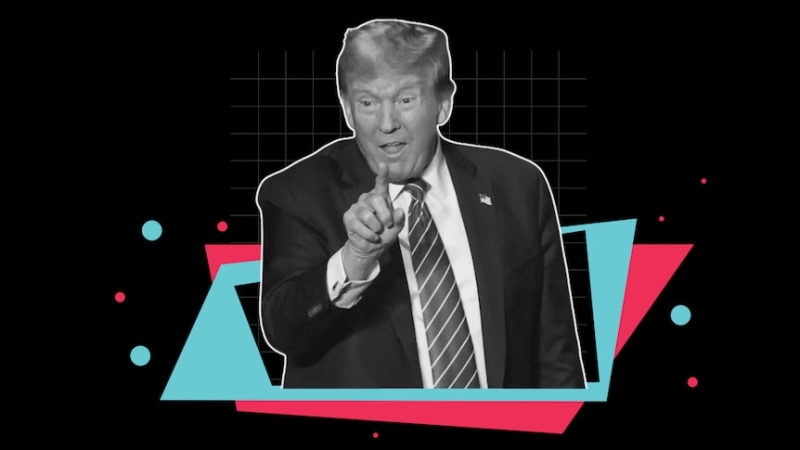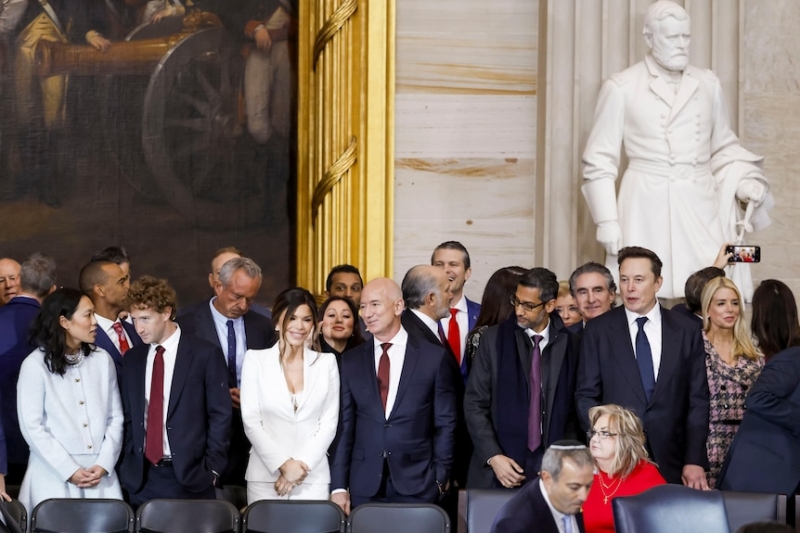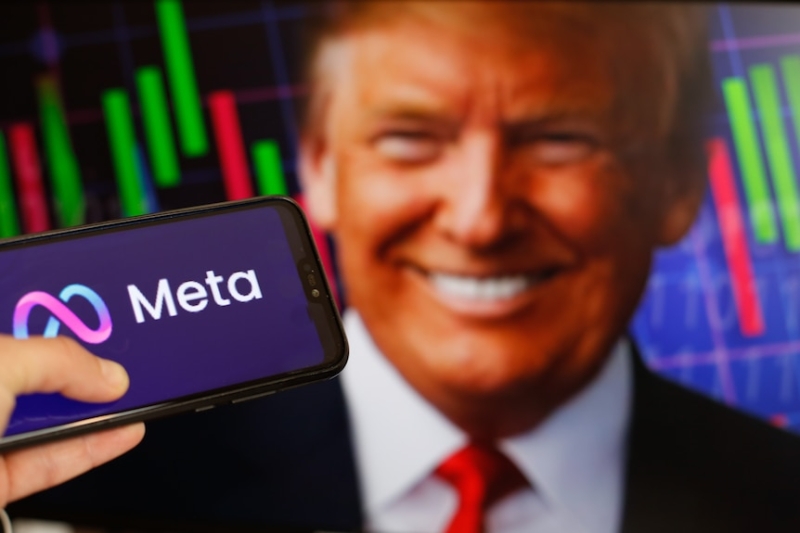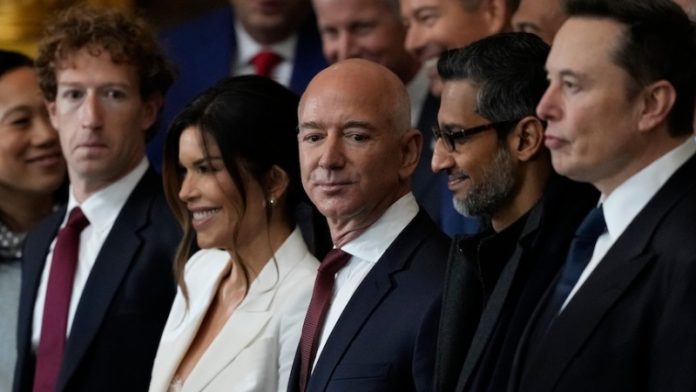CEOs and billionaires such as Mark Zuckerberg, Jeff Bezos, Sundar Pichai and Elon Musk were front and centre at the US Capitol as Donald Trump was inaugurated. (AP:Julia Demaree Nikhinson)
There's no official ruling on the collective noun for a group of billionaires — "wad" and "grovel" are both top contenders on social media and internet message boards — but if ever we needed one, it was this week, in the wake of Donald Trump's inauguration.
Trump's swearing in was always going to be a spectacle, but the most striking view on the day, narrowly beating even Elon Musk's controversial "Roman" salute, was an improbable cluster of supremely powerful tech leaders braving sub-zero temperatures to eat crab cakes and apple terrine with the new president.
Amazon's Jeff Bezos, Meta's Mark Zuckerberg, Google's CEO Sundar Pichai and its co-founder Sergey Brin, Apple's Tim Cook, OpenAI's Sam Altman, TikTok's Shou Zi Chew and of course billionaire tech mogul and key Trump ally, Elon Musk, were all there.
Many were more prominently placed than Donald Trump's own cabinet picks, as Democrat Senator Elizabeth Warren noted in a social media post.
Headlines seeking to capture the extraordinary scene ultimately gave "wad" and "grovel" a miss, opting instead for a more grave description, alleging a new "tech oligarchy" in the US.
Whichever way you dice it, it's been months in the making.
Silicon Valley's aristocracy swung into line behind the Republican campaign as the 2024 election approached and predictions of a second Trump presidency grew more confident.
For some tech leaders, it meant doubling back on years of political allegiances.
Trump hasn't saved TikTok, he's just given it a breather
Photo shows A cutout black and white picture of Donald Trump against a black background, surrounded by teal and red geometic shapes

Zuckerberg is a noted case in point, having previously dedicated himself to a handful of progressive causes, including co-founding an immigration reform group in 2013.
More recently, Zuckerberg's language and entire business has lurched to the right, lamenting the rise of "culturally neutered" companies in need of more "masculine energy" on Joe Rogan's podcast, binning fact checkers and vowing to "dramatically reduce censorship" across Facebook, Instagram and Threads in the US.
In recent weeks, Google, Microsoft, Apple CEO Tim Cook, Meta, Amazon, and OpenAI CEO Sam Altman all reportedly donated $US1 million each to Trump's inauguration, while Uber and its CEO, Dara Khosrowshahi, each contributed the same amount.
Their contributions pale in comparison to that of Elon Musk, Trump's self described "first buddy" who spent in excess of $US100 million to aid his re-election.
All that generosity inspired accusations from Elizabeth Warren and her fellow Senator Michael Bennet that tech leaders are making a corrupt effort to "influence and sway" the Trump White House on tech policy.
The CEO of OpenAI, Sam Altman, hit back on X, saying "funny, they never sent me one of these [letters] for contributing to the democrats".
In fairness, it's more or less standard procedure for business leaders to throw money at an incoming president — but not like this.
In the case of Joe Biden's inauguration, donation records show only Uber threw $US1 million at the event, while Microsoft gave $US500,000, and Google and Amazon chipped in less than a third of this year's gift.
In 2021, Apple donated just $US43,200. Meta and OpenAI didn't contribute at all.
Personal politics to one side, there's nothing baffling about that discrepancy.
Whether their new-found enthusiasm for the Trump White House is a case of reluctant surrender, sincere endorsement, or a cynical grab for a seat in a nascent tech oligarchy, it appears to be paying off.
Within 24 hours in office, Donald Trump had issued a reprieve for TikTok in its bid to fight off a US ban, signed an executive order aimed at "restoring freedom of speech" on social media, ripped up his predecessor's rules on AI safety, and announced a $US500 billion AI infrastructure program.

The cluster of powerful tech leaders attending Donald Trump's inauguration was one of the most striking scenes of the day. (AP: Shawn Thew)
So what else do the so-called tech oligarchs stand to gain from a Trump Presidency?
For CEOs of the tech giants, a preference for seeing Donald Trump in the White House rather than Joe Biden or anyone like him, is a canny business decision, and an obvious one at that.
The Biden Administration made a point of cracking down on tech companies, and nearly every one of those companies has faced lawsuits initiated by the Federal Trade Commision (FTC) or the Justice Department, many of which are unresolved.
Biden's appointment to FTC Chair, 35-year-old firebrand Lina Khan, has investigated and sued most of the companies that were represented on the inauguration stage. She announced her resignation this week.
It's not clear yet exactly how Donald Trump will handle the task of tech regulation, but early indications suggest a lighter touch, to say the least.

Mark Zuckerberg told Joe Rogan the US government had a role in defending the US tech industry rather than leading the regulatory attack against it. (AP/SOPA Images: Dominika Zarzycka)
Mark Zuckerberg captured their ambition neatly in his interview with Joe Rogan, arguing that "the US government has a role in basically defending [the US tech industry] abroad", rather than leading the regulatory attack against it — a charge he levelled at the Biden Administration.
If Trump's regulatory touch is as light as Zuckerberg is hoping, it will put the US at odds with both Australia and the EU, whose governments are moving in the opposite direction contemplating, and in the EU's case enacting, tougher tech regulations than ever before.
There are never any guarantees of course when it comes to Donald Trump.
The "tech oligarchy" is already showing cracks though, with Elon Musk publicly undercutting the President's $US500 billion AI infrastructure project, flamboyantly titled "Stargate", before the ink was dry on the transcript.
And while there's been a glut of tech-friendly Executive Orders out the gate, the Trump Administration is riddled with competing instincts towards the sector — evidenced by a simultaneous attack on electric vehicles.
For now though, the tech aristocracy has every reason to be hopeful, and the tech users of the world have every reason to worry — including in Australia.

